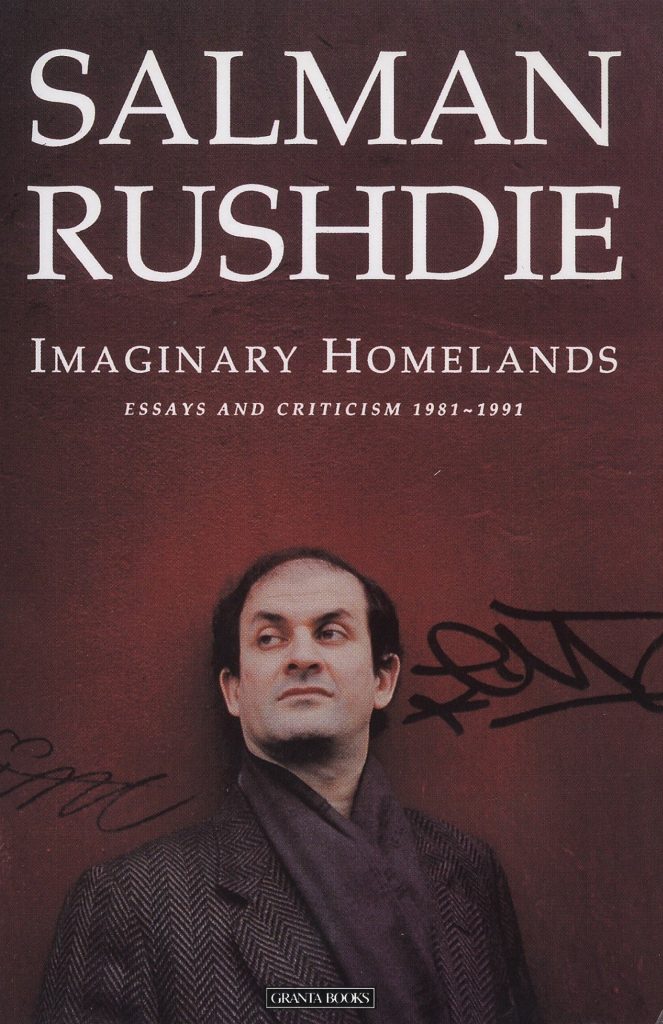
Thirty years ago this month, a fanatical cleric in a foreign country openly called for the murder of a British citizen, a humble novelist born in Bombay, for the “crime” of blasphemy. The author was Salman Rushdie, the cleric the Ayatollah Khomeini, and the novel alleged to have blasphemed against Islam was The Satanic Verses. Three decades is a long time, but the retrospectives published, of late, speak to a common theme: it was the murderous Ayatollah, not Rushdie and certainly not Western society, that emerged victorious. Consider: Rushdie continues to live in hiding, checking into hotels under pseudonyms and never alerting his fans far in advance of his attendance at a public event; the Ayatollah, now dead, lies enshrined in a gold tomb in Iran, where private citizens can still be locked up for criticizing him; and those Western countries, whose leaders still make the odd mealy-mouthed defence of free speech, have enacted a series of speech codes so broad and far-reaching as to constitute de facto blasphemy laws. Indeed, the European Court of Human Rights, in their infinite wisdom, specifically cited criticism of Mohammad, the prophet of Islam, as “incitement to hatred,” and therefore outside the bounds of acceptable speech. One of Rushdie’s most vocal critics, the former “Minister of Culture and Islamic Guidance” in Iran, Ataollah Mohammad, who penned an open defence of the Ayatollah’s fatwa on theological grounds, now resides in Britain, and is a regular guest on the BBC.
The 70-odd essays collected in Imaginary Homelands span the entirety of the 1980s, and the earliest of them cannot be read without a kind of pity, for their innocent author does not know that he will soon be a marked man, that his scribblings and innate curiosity – so laudable in the world of letters – will bring him into mortal confrontation with another, far less forgiving world. And yet the breadth of the essays, and the subjects of his scorn, show a Rushdie prepared for the fight. He takes on Thatcher’s Britain and Pakistani heroin pushers with equal élan. Zia al-Huq, the Pakistani general supported by the West in their proxy war with the Soviet Union, “burst out of his bottle like an Arabian Nights goblin, and although he seemed, at first, a small, puny sort of demon, he instantly commenced to grow, until he was gigantic enough to be able to grab the whole of Pakistan by the throat.” Rushdie’s greatest gusto, however, is reserved for the arts, and for those writers and filmmakers who have most impacted him. To Rushdie I owe the discovery of Satyajit Ray, an Indian filmmaker whose technical innovations influenced Japan’s Akira Kurosawa and America’s Francis Ford Coppola, and the Polish travel writer Ryszard Kapuściński, whose travels took him to Angola in the middle of its civil war. Not all the essays are entirely appreciative. What does an Indian-born citizen of Britain think of Rudyard Kipling, proud defender of British colonialism, and persona non grata on most contemporary college curriculums? “No other Western writer has ever known India as Kipling knew it, and it is this knowledge of place, and procedure, and detail that gives his stories their undeniable authority.” He goes even further: “[…] nobody can teach you British India better than Rudyard Kipling.” Rushdie then goes on to demonstrate how “the problem of condescension,” the problem of Kipling’s presumed superiority to his Indian characters, infects his writing.
Another theme uniting these essays, hinted at in the title, is the importance of migration, both physical and spiritual. Salman Rushdie grew up as a Muslim in predominantly Hindu Bombay (now Mumbai), before he immigrated to Britain. “[…] this is what makes migrants such important figures: because roots, language and social norms have been three of the most important parts of the definition of what it is to be a human being. The migrant, denied all three, is obliged to find new ways of describing himself, new ways of being human.” What, in practice, does this look like? In literature, I can speak from experience, for I stand with Rushdie in choosing my own progenitors.
[…] it is perhaps one of the more pleasant freedoms of the literary migrant to be able to choose his parents. My own – selected half consciously, half not – include Gogol, Cervantes, Kafka, Melville, Machado de Assis; a polyglot family tree, against which I measure myself, and to which I would be honoured to belong.
The fatwa against Rushdie was, in no small part, targeted at the audacity of this claim to multiple identities: that a Muslim might be a novelist, might exercise freedom of thought and imagination, and might target those potent weapons against an idea that cannot tolerate criticism of any kind.